Category Archives: Lindau Nobel Laureate Meeting 2016
Physics World talks to Spanish TV about migrating Nobel laureates
By Hamish Johnston
A few weeks ago I was in Germany for the 66th Lindau Nobel Laureate Meeting, where I moderated a “press talk” about migration and science. This was essentially a panel discussion that involved two chemistry Nobel laureates – Martin Karplus and Daniel Shechtman – and two early-career physicists: Winifred Ayinpogbilla Atiah from Ghana and Ana Isabel Maldonado Cid from Spain.
A Nobel view on scientific leadership
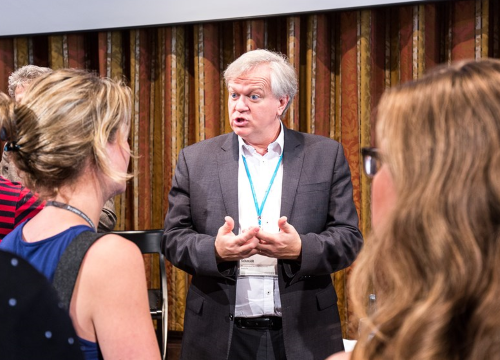
Brian Schmidt speaks to young scientists in Lindau. (Courtesy: Lindau Meeting)
By Alaina G Levine, at the Lindau Nobel Laureate Meeting in Germany
One of the best things about being at the 66th Lindau Nobel Laureate Meeting is that there are surprises around every corner. The organizers give you a programme, but you might not even realize the significance of an event until you are knee deep in it.
This morning, I attended one of four “Science Breakfasts” held this week, in which Nobel laureates and leaders in various industries share the stage and discuss topics of interest to the young scientists who have travelled from all over the world to participate in the meeting.
Over croissants and orange juice, the 2011 physics Nobel laureate Brian Schmidt took part in a lively discussion that itself was a mouthful: “Decoding science leadership: Developing capacity for leading innovation in a rapidly evolving 24/7 world with disruptive opportunities and challenges”.
View all posts by this author | View this author's profile
George Smoot on mapping the universe with gravity
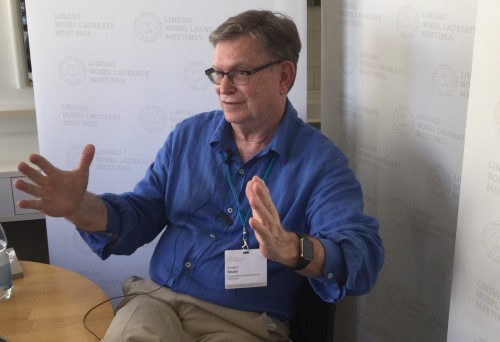
Measuring the universe: George Smoot enthuses about gravitational waves.
By Hamish Johnston at the Lindau Nobel Laureate Meeting in Germany
Yesterday I was in a fantastic session with George Smoot, who shared the 2006 Nobel Prize for Physics for discovering the anisotropy in the cosmic microwave background. He will be speaking today at the 66th Lindau Nobel Laureate Meeting about another important astronomical discovery, the first direct detection of gravitational waves that was made by LIGO in September 2015. Waves that were created by the merger of two unexpectedly large black holes.
Carlo Rubbia backs a Higgs factory and methane cracking
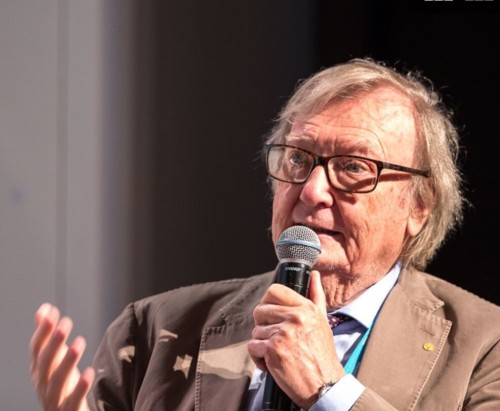
Good craic: Carlo Rubbia wants to have a crack at methane. (Courtesy: Lindau Meeting)
By Hamish Johnston at the Lindau Nobel Laureate Meeting in Germany
It’s my second day here at the 66th Lindau Nobel Laureate Meeting, and it has been a busy one so far.
I have just been chatting with Carlo Rubbia, who shared the 1984 Nobel Prize for Physics for the discovery of the W and Z particles.
Rubbia gave a fantastic talk yesterday about future sources of energy and he was eager to expand on this topic. In particular, he told me about a new technology he has been working on to produce energy from natural gas without releasing any carbon dioxide – a technique called “methane cracking“. While this sounds like a fantastic solution to climate change, at least in the short term, he admits there are lots of technical challenges to overcome.
Blue LEDs and a revolution in light
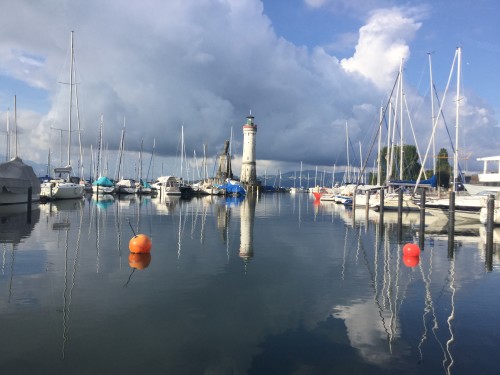
Morning in Lindau: great scenery and wonderful talks.
By Hamish Johnston at the Lindau Nobel Laureate Meeting in Germany
It has been a great morning of physics talks this morning here at the 66th Lindau Nobel Laureate Meeting. Hiroshi Amano, who shared the 2014 Nobel Prize for Physics for the development of the blue LED, spoke first about the practical aspects of his creation.
Electronic displays and low-energy lighting are two obvious applications for blue LEDs. Amano pointed out that LED lighting uses 1/8 the energy of incandescent bulbs and 1/2 that of fluorescent lights. But perhaps more importantly, he says that this low-energy operation means that light can be introduced to remote and poor parts of the world. This has the potential to boost education because it enables children in areas with no mains electricity to read and study at night.
View all posts by this author | View this author's profile
Talking about immigration with Nobel laureates in Lindau
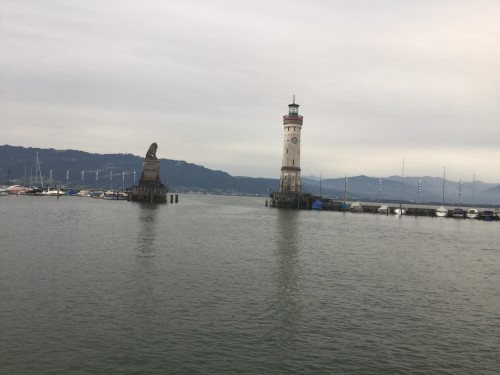
Lakeside view: Lindau’s harbour on Lake Constance.
By Hamish Johnston at the Lindau Nobel Laureate Meeting in Germany
I arrived in the German town of Lindau yesterday evening expecting it to be a sleepy little burg where I would struggle to find somewhere open to get a bite to eat. Instead I was greeted at the station by a cacophony of car horns and singing as Germany had just beat Slovakia and claimed its place in the next round of the Euro 2016 football tournament.
I’m here in the far south of Germany for the 66th Nobel Laureate Meeting. Tomorrow I will be hosting a “press talk” about how immigration continues to shape the scientific world. Last week’s momentous decision by the UK to leave the European Union is sure to come up in the panel discussion, which will include input from two chemistry Nobel laureates – Martin Karplus and Daniel Shechtman. I will also be joined on the panel by two early-career physicists: Winifred Ayinpogbilla Atiah from Ghana and Ana Isabel Maldonado Cid from Spain.